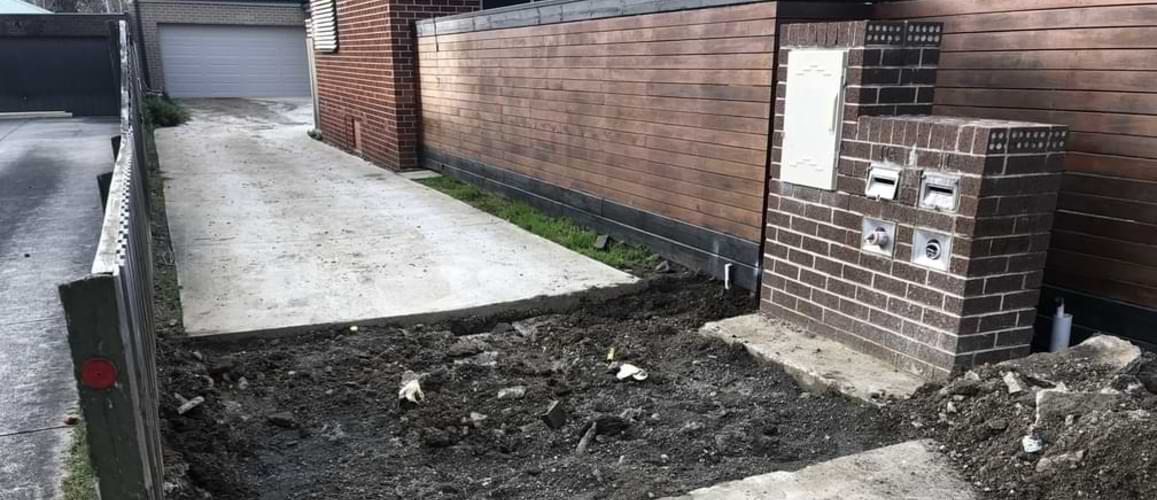Concrete Driveways
Concrete is often considered to be the best material for building a driveway. It’s relatively cheap, low maintenance and is an incredibly strong building material.
Causes of Concrete Driveway Damage
Concrete is a tough and durable construction material. With regular and careful maintenance, your concrete driveway can last up to 30 years before you start to see signs of wear and tear. But certain conditions can fast-track its aging, leading to hideous cracking, scaling and discolouration. To help you get the most out of your concrete driveway, we’ve put together this list of major causes of damage. This way, you’ll know what to look out for and can prevent damage before it occurs.
- Poor installation
- Heavy loads
- Weather conditions
- Soil movement
- Tree root growth
- Studded tires
- Shovelling
- Rock salt and ice melters
- Water
Albeit, some of these are natural causes and unpreventable, but good and consistent maintenance of your concrete driveway will make it last longer. If damage has been done and cannot be remedied by a simple maintenance routine, then it’s time to repair.
Concrete Driveway Repair
If your driveway is damaged, there are three options: repair, resurface or replace.
Repair
It’s a fairly simple procedure to repair a damaged concrete driveway. The top layer needs to be ground down and a new concrete layer applied to bring back your driveway’s smooth surface. Repairs are the ideal solution for stubborn stains, minor cracks, and small holes.
Minor cracks and holes with a diameter of about half a centimetre will not pose a structural hazard. You can temporarily repair damaged concrete driveways by filling or patching. Keep in mind that fillers and patches will look different from the concrete they’re applied to, and your driveway may start to look patchy if you need to repair several parts of the driveway. Also, patches are not watertight; water will eventually seep through the patch and reopen the crack or hole. It’s a simple project you can do on your own, but if you want a durable and long-lasting solution, it’s best to call an expert to do your repairs.
Resurface
Resurfacing a concrete driveway is a method that can be used to revive aged and damaged concrete. The process simply involves applying a concrete coating over the worn-out surface, creating a new finish that covers up minor damage such as cracks, discolouration, and other imperfections. This concrete coating will create a sturdy finish and a lasting bond with the original surface. You can do a variety of things with resurfacing; for instance, the concrete overlay can be stained, stamped, and hand-carved to look like flagstone, cobblestone, roman slate and more. You have the option to choose the colour, texture, and patterns to revamp or match your existing concrete driveway.
Replace
If your concrete is seriously damaged, it may not be easily fixed by resurfacing. In this case, your contractor would have to resort to breaking up your old slab and pouring a new one. A concrete driveway replacement involves removing the existing concrete and constructing a new driveway. If you do get your driveway replaced, make sure to listen carefully to the contractor about how long to wait until driving on the concrete. Otherwise, you may need to replace the concrete again.
Not sure whether to repair, resurface, or replace your concrete driveway? Get in touch with one of our experts and have the damage assessed.
Concrete Driveway Maintenance
One of the best things about concrete driveways is how little maintenance they require. Nevertheless, you will still need to do some maintenance to keep your driveway in pristine shape for a long time.- Clean and reapply sealer Regularly cleaning your driveway prevents mould and mildew from developing on your concrete. Sealing is one of the most effective ways of protecting your driveway from cracking. We advise resealing your driveway every two years or when you notice signs of wear and tear on the surface. Try to keep your driveway as clean as possible. This may mean regularly washing it or sweeping away dirt.
- Remove stains immediately While sealing your concrete is helpful in preventing stains, you still must clean up oil, gasoline, grease, and other spills as soon as possible. Otherwise, a stain may form and be difficult to remove later on.
- Avoid using deicing chemicals If you live somewhere where frost or snow is an issue, you need to be careful about using deicing chemicals near or on your driveway. Deicing chemicals contain ammonium nitrates and ammonium sulphates that will cause your concrete driveway to crack.
Let us help you
Looking for concrete driveway contractors in Melbourne? JMC Concrete is located in East Melbourne and offers top-notch concrete solutions that won’t break the bank. We provide both commercial and residential concrete driveway repairs. Our expertise includes concrete removal and repairs, concrete shed slabs, concrete foundations, and more.
Need a quote? Talk to our concrete driveway contractors now!
   